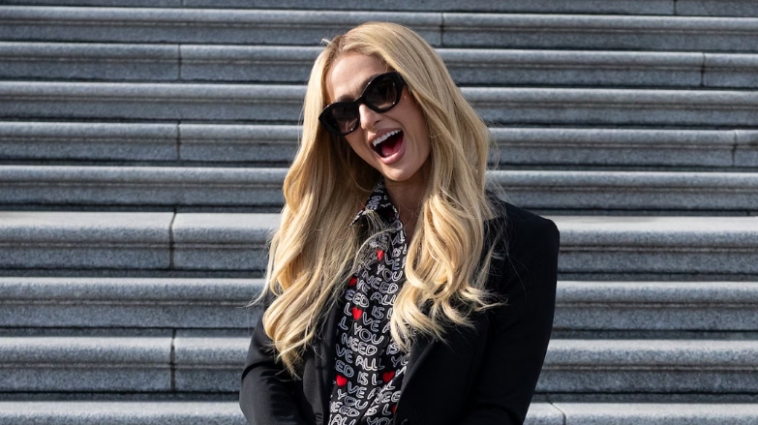Paris Hilton, the 43-year-old media personality, entrepreneur, and advocate, has hinted at the possibility of a political career following her instrumental role in the passage of the Stop Institutional Child Abuse Act. The bipartisan legislation aims to bring transparency and accountability to youth residential programs, many of which have been criticized for abusive practices.
From Advocacy to Political Ambitions
Hilton’s potential interest in politics stems from her recent experiences advocating for legislative change. During an interview on Capitol Hill, Hilton said, “After coming here so many times over the past couple of years and seeing that my voice really can make a difference… I can maybe see that happening,” in response to a question about running for office.
The advocacy work that sparked this consideration is deeply personal for Hilton, who has spoken openly about the abuse she endured as a teenager at a youth residential facility. Her testimony and public campaigning have brought national attention to the challenges facing vulnerable youth in such programs.
A Legislative Milestone
The Stop Institutional Child Abuse Act, which Hilton championed, passed the House of Representatives with overwhelming bipartisan support in a 373-33 vote and was unanimously approved by the Senate. The bill requires greater oversight, transparency, and safeguards in youth residential programs to ensure the safety and well-being of children. It now awaits President Joe Biden’s signature to become law.
Hilton celebrated the bill’s passage as a significant victory for child welfare. “This is for every survivor who has shared their story to make this happen. Together, we’ve made history,” she said, reflecting on her advocacy journey.
A New Chapter for Paris Hilton
Hilton’s shift from celebrity to advocate has been met with widespread acclaim, showcasing her ability to use her platform to effect meaningful change. Her potential entry into politics could amplify her influence, allowing her to address broader issues impacting vulnerable populations.
Political experts note that Hilton’s transition to public service would not be unprecedented. The increasing number of public figures entering politics reflects a broader trend of leveraging fame for political impact. Hilton’s success in advocacy demonstrates her ability to navigate complex political processes and build bipartisan coalitions—skills that could serve her well in a political role.
Continued Commitment to Advocacy
Regardless of her future political ambitions, Hilton has vowed to remain a voice for those in need. She continues to champion child welfare reform and has expanded her advocacy to include foster care and juvenile justice issues.
In a statement reflecting her ongoing commitment, Hilton said, “I won’t give up on this fight. Every child deserves to feel safe, loved, and protected.”
What’s Next?
As Hilton contemplates her next steps, her work on Capitol Hill serves as a testament to the power of personal stories and public advocacy in driving legislative change. Whether she decides to enter the political arena or focus solely on her advocacy efforts, Hilton’s impact on child welfare reform will remain a defining chapter in her legacy.
The success of the Stop Institutional Child Abuse Act marks a turning point for Hilton, showcasing her evolution from reality TV star to a respected advocate for systemic change. For now, the world waits to see if Hilton will take her activism one step further and step into the realm of public office.


